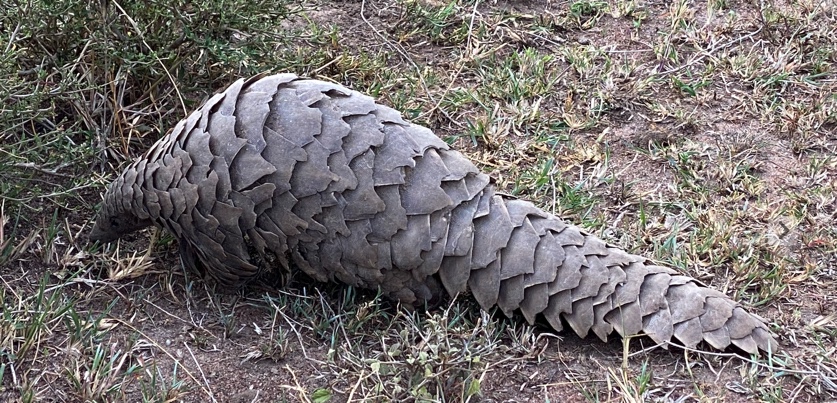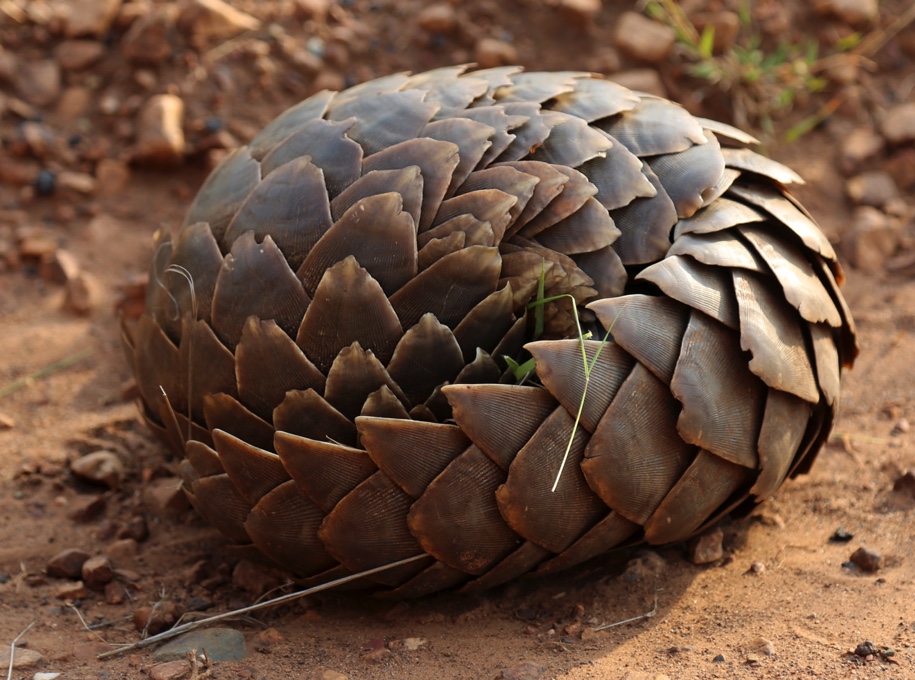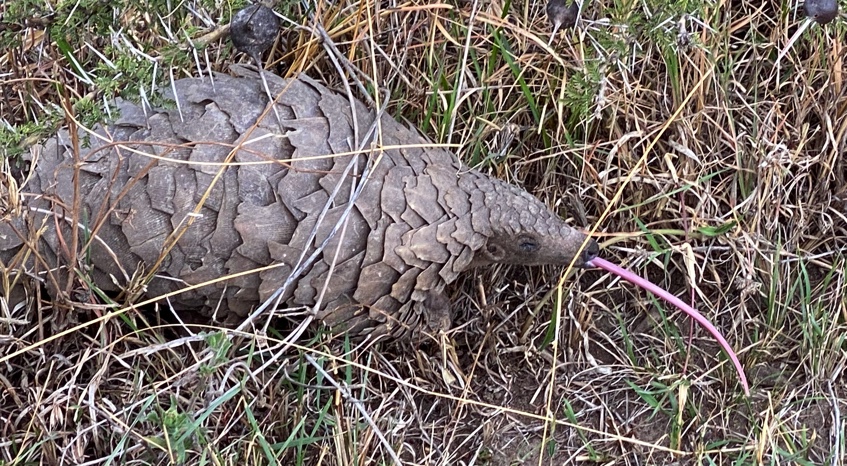It was the second day of our Tanzanian wildlife safari when our grandson ran into our tent, excited and out of breath. “They’ve seen a pangolin. Let’s go!” We piled into our safari vehicles and made a mad dash into the bush. Soon, we were at a site where two game wardens waited. They pointed to a pangolin waddling slowly along the ground. They were beaming, and we were astonished at our luck. Seeing a pangolin is like winning the lottery.

The pangolin, actually the eight species of pangolin found in Asia and Africa, is among the most endangered species in the world that you’ve probably never heard of. According to the IUCN, all species are at least vulnerable, and most are endangered or critically endangered.
Pangolins are small mammals, usually a foot or two long and weighing a few pounds, covered over their entire body with thick scales made of keratin (like fingernails). Also called scaly anteaters, pangolins move slowly. Their defense mechanism is to roll into a tight round ball, their sharp scales deterring all their natural predators. They feed on ants and termites, using their long front claws to tear apart insect nests and termite mounds, then using their long, sticky tongues to lap up the exposed six-legged morsels.

They are protected from natural predators by rolling up and playing dead, but not from humans. The various species are endangered because individual pangolins are so easily captured by humans. And the over-exploitation is severe, with several species having been reduced in abundance by half in recent years. Only about 50,000 individuals of all species combined live in Asia and Africa in total. According to several sources, pangolins are the most illegally trafficked wildlife in the world.
And why? Two reasons—tradition and greed. First, traditional Chinese medicine considers the scales to have medicinal qualities, but those qualities, like so much of Chinese traditional medicine that utilizes animal parts, have no basis in fact. Using them as medicine is like chewing your fingernails to get over cancer. Second, some Asian cuisines consider pangolin meat a delicacy, served in the most exclusive and expensive restaurants. To satisfy these two demands, poachers and smugglers have heavily exploited pangolins, first targeting populations in Asia and more recently in Africa. And let’s not be complacent in the U.S. Customs officials continue to intercept smuggled pangolin products coming into the U.S., several thousand cases per year.

The plight of pangolins has recently begun to get more attention, perhaps because of the work of one Rhishja Cota, an advocate for stopping the illegal wildlife trade. She began World Pangolin Day in 2012, held on the third Saturday in February (the 18th in 2023). Years ago, when I asked people if they ever heard of pangolins, the usual answer was “no.” Today, however, a larger percentage is answering “yes.” And then condemning what has been happening to these strange and vulnerable creatures.
May the fame of pangolins continue to grow around the world—and their fate change from endangered to beloved.
References:
Annamiticus. Our Story. Available at: https://annamiticus.com/about-us/our-story/. Accessed January 18, 2023.
Center for Biological Diversity. Pangolins. Available at: https://www.biologicaldiversity.org/species/mammals/pangolin/index.html. Accessed January 18, 2023.
Center for Biological Diversity. 2020. U.S. Agrees to Decide Pangolin Protections. Available at: https://biologicaldiversity.org/w/news/press-releases/us-agrees-decide-pangolin-protections-2020-08-18/. Accessed January 18, 2023.
Cota, Rhishja. World Pangolin Day. Available at: https://www.pangolins.org/author/rhishja/. Accessed January 18, 2023.
IUCN. Pangolin. International Union for the Conservation of Nature, Red List. Available at: https://www.iucnredlist.org/search?query=pangolin&searchType=species. Accessed January 18, 2023.

